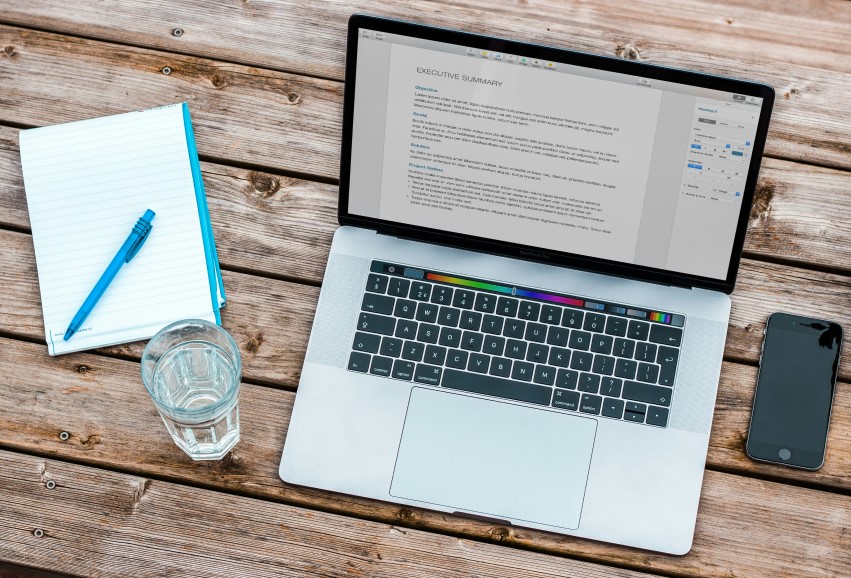As a college student, resume writing is about to become a significant part of your life. Whether you’re graduating soon and about to enter the job market, applying for internships, or simply applying for part-time jobs while you’re still in school, resumes play a huge role in the process. Think of it as a concise summary of your professional journey and why you’re an ideal candidate for the job.
But like with most things, there are good resumes and bad resumes. Submitting a poorly written resume is practically a nail in the coffin of your dream job. The good news is, we’re here to help. As professionals ourselves, we here at Collegeboxes know a thing or two about great resumes.
Here are 10 resume writing tips specifically for students.
1. Keep it Professional
You may not be a professional yet, but employers still expect you to act like one. That starts with building a professional resume. In fact, it’s one of the easiest things you can do to differentiate yourself from other applicants.
So, what makes a “professional” resume? Here a few key tips:
- Use professional language – avoid slang, excessive jargon, and exclamation points.
- Use a professional-looking font, such as Arial or Times New Roman, size 10 or 12.
- Include your contact information.
- Clearly label and structure your resume so it’s easy to read.
- Avoid including overly personal information.
- Don’t use bright or jarring colors.
- If you include a headshot, be sure it’s work appropriate (no selfies).
2. Keep It Concise
Assume that most hiring managers aren’t going to spend much time reviewing your resume, even if you have a lot to say. They’re usually skimming for keywords. That’s why it’s important to keep things as concise as possible by using clear, focused statements that don’t ramble too much.
For example, instead of writing “I spent almost my entire sophomore year working in the writing lab every other Tuesday, helping other students improve their writing skills and write better essays,” try “Tutored other students in the writing lab, with a focus on written essays.”
3. Start Each Point with an Action Verb
Start each work experience statement with an action verb, such as “lead,” “improved,” “optimized,” etc. These words cut down on “fluff” and instead highlight your achievements in a more active manner. Use a wide range of action verbs to avoid repetition, as using the same word repeatedly may indicate you lack creativity, take shortcuts, or simply don’t care all that much.
Pro tip: if you have any data-based talking points, be sure to include them. For example, saying that you “improved efficiency” is vague. However, saying you “improved efficiency by 30%” quantifies your experience and accomplishments, which makes a stronger statement.
4. Only Include Relevant Information
For many students, extensive professional experience is hard to come by. As a result, it can be tempting to include every possible life event on a resume just to fill the space. This is a mistake! As we mentioned earlier, hiring managers typically skim resumes for relevant information. While your high school babysitting gig may have taught you a lot, it’s probably not relevant to the position you are applying for. Prioritize experience and responsibilities that matter.
Bonus tip: 10 years is typically the cut off for relevant work experience (although there will always be exceptions).
5. Tailor Your Resume for the Job You Want
If you have a specific position, company, or industry in mind, it’s recommended that you tailor your resume accordingly. Keep an eye out for keywords or phrases commonly used in job listings and try to incorporate them into your resume whenever possible. This strategy will make your resume stand out, especially when companies employ software to filter out irrelevant resumes.
It’s also a good idea to specifically state in your goal or mission statement that you are actively seeking employment within that industry, company, or position, along with a compelling reason why. You might even want to create several resume variations if your job search is a broad one.
6. Don’t Forget Extracurricular Activities
Most people think a resume is only for job experience and education, but extracurricular activities are just as important, especially for students. That means athletics, clubs, and organizations should be listed as relevant experience. Even if your club or organization isn’t directly relevant to the job you’re applying for, it proves your ability to work within a team and showcases other valuable skills.

7. Include Skills and Achievements
Like extracurricular activities, listing your skills and achievements is important as well. This part can be very simple – even a bulleted list mentioning everything from computer programs you’re familiar with to general skills, like creative writing or photography, can be helpful. For best results, prioritize skills and achievements that are relevant to the job listing in question.
8. Consider Including Relevant Coursework
As a student, you might not have much work experience to your name. Not a problem! That’s where your coursework, internships, and academic achievements come into play. List any classes, certifications, awards, or achievements that you’ve earned. Internships are also a major plus. Even specific projects or assignments are worth a mention if they’re relevant.
9. Format Your Resume for Success
This might be hard to believe, but resume aesthetics are almost as important as content. Here are a handful of tips to help yours stand out:
- Use bulleted lists instead of paragraphs when listing work experience.
- Don’t leave too much white space – but don’t over-stuff either.
- One-inch margins are standard for a reason – anything above two inches is too much.
- Avoid using more than one page unless absolutely necessary.
- List your work experience in chronological order.
- Include the most important points first.
- Submit your resume as either a PDF or Microsoft Word document (.doc).
10. Proofread, Proofread, Proofread
What good is a stunning resume if it’s full of errors? Even minor typos or misspellings can leave a bad impression with a potential employer. That’s why it’s so crucial to take some time to proofread your resume at least 2-3 times for spelling and grammatical errors.
We also recommend having a friend or family member proofread it as well, as they’ll likely catch errors that you naturally overlook. If you’re still not sure it’s error-free, your university’s writing center likely offers resources or in-person help specifically for crafting great resumes or overall effective writing.
Building a resume can be an exciting new endeavor, especially when you’re empowered with tips to help you succeed! At Collegeboxes, we’re here to help students in many ways – primarily through our Storage and Ship to School services.
Whether you’re getting ready to leave college or just starting, our services make the process easier so you can focus on important things, like landing your dream job. Sign up with us today!
